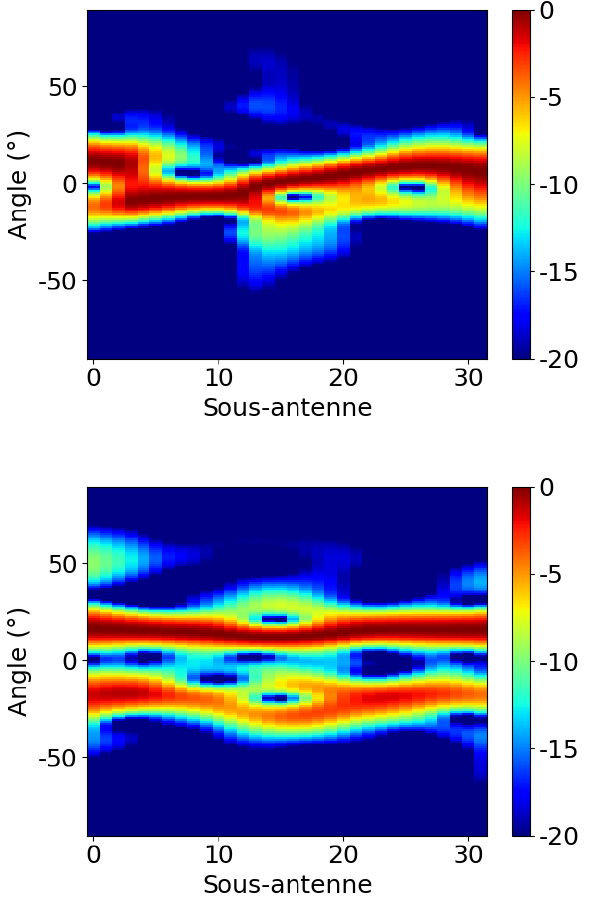Synergy of ENSTA Bretagne research topics in underwater acoustics.

Array processing in fluctuating environments
In passive underwater acoustics (i.e., without emission, based solely on listening to the environment), source detection and localization are highly dependent on knowledge of the propagation environment. However, the ocean is the site of a wide variety of oceanographic phenomena, covering a broad spectrum of spatial and temporal scales, which cause fluctuations in the parameters conditioning wave propagation. An illustrative example is that of internal waves: the oscillations of water masses produce a field of spatio-temporal variations in the celerity of sound, giving rise to random distortion of the sound signal (wavefront folding, loss of coherence), which in turn degrade the performance of antenna processing.
In this context, the team’s work focuses on i) understanding and estimating the oceanographic phenomena behind environmental fluctuations, ii) studying and simulating acoustic propagation in fluctuating environments, iii) proposing statistical or probabilistic models to describe the impact of these fluctuations on acoustic propagation, iv) developing and validating new acoustic signal processing tools, incorporating these models, for greater robustness to environmental fluctuations.
Illustration: Angle of arrival evolution for 2 successive pings using sub-antenna processing (L’Her, 2024, PhD thesis)

Sonar image processing
Image processing dedicated to underwater objects recognition, perception of small underwater vehicles (detection and classification of objects lying on the seabed, or floating in the water column or at the sea surface).
➜ More details : https://acoustics.ensta-bretagne.fr/research/sonarimageprocessing/
Data processing
Seabed mapping
IA
Bioacoustics
Underwater explosion and noise reduction
